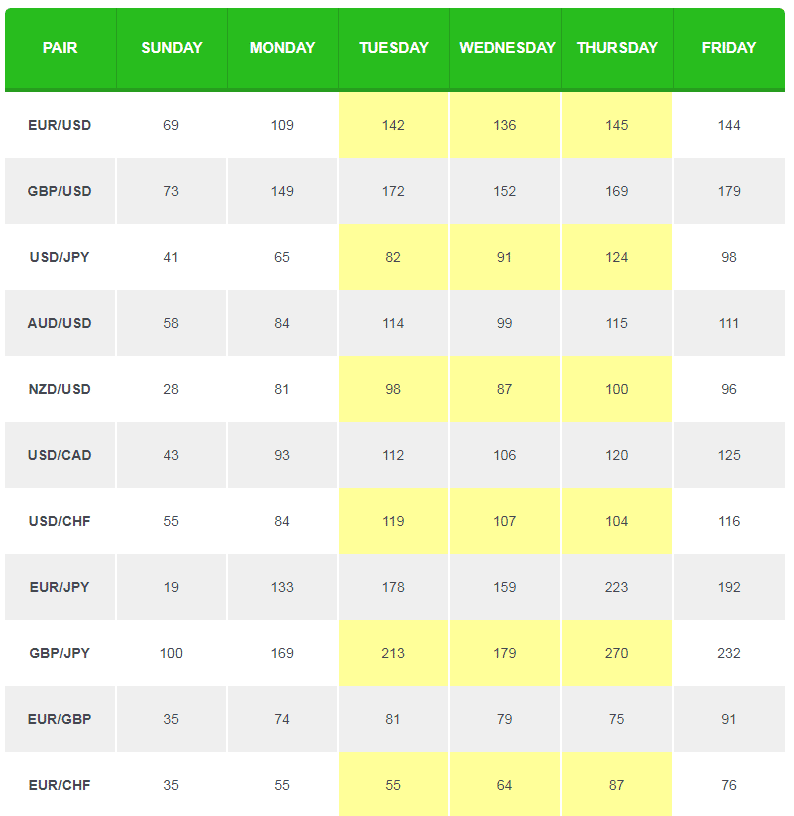
You might be wondering if there is an online stock broker that you can trust if you are a beginner in the stock market. The answer depends on your needs and the knowledge you have about investing. Below is a list of top online stock brokerages for beginners. These include Charles Schwab, Ally Invest Merrill Edge, TD Ameritrade and Merrill Edge. There is a broker for every type of investor, including beginners.
Charles Schwab
Charles Schwab is a great resource for investors, whether you are new or experienced. There's no minimum account, no commission for stock trades or ETFs, and thousands of funds are available at a low price. Schwab is an investment education-focused broker. There are also no transaction fees, and there are several investment platforms and free educational resources.

Ally Invest
The platform allows you to place transactions quickly and easily. However, Ally Invest doesn't offer advanced trading features such order routing, options strategy, or dynamic charting. Instead, you will need to manually cancel orders when your stop loss or profit loss triggers. Ally Invest has these features but is far behind other online brokers. The company also doesn't support trading in cryptocurrency and futures.
Merrill Edge
Merrill Edge could be the right online stock broker for you if you're just starting out and don’t know how to trade stocks. The broker is easy to use and allows you trade many asset classes. Merrill Edge can provide a list buy-rated funds. But, it doesn't guarantee performance. To get out of the complexities and risks of trading, you can use their managed service. This option will depend on how much you are willing to invest.
TD Ameritrade
TD Ameritrade ranks among the top online brokers available for beginners. Its intuitive desktop tools allow for quick trade execution. It offers wealth management services, including stock and option research and third-party reports. Its "knowledge base" has a wealth investment and stock picking information. Access to a variety tools and research can be accessed by traders who want to make better investment decision.

Interactive Brokers
Before you register with an online stock broker you need to determine your level of education. While some brokers allow you only to invest a few dollars each, others require you deposit a greater amount to open an online account. An online broker may be a better option for beginners with low funds. There are many benefits to using an online stock broker for beginners, including low account fees and educational resources. These are just a few of the many benefits that an online stock broker offers beginners.
FAQ
What is security?
Security is an asset that generates income for its owner. Shares in companies are the most popular type of security.
A company could issue bonds, preferred stocks or common stocks.
The value of a share depends on the earnings per share (EPS) and dividends the company pays.
You own a part of the company when you purchase a share. This gives you a claim on future profits. You will receive money from the business if it pays dividends.
Your shares may be sold at anytime.
Is stock a security that can be traded?
Stock is an investment vehicle which allows you to purchase company shares to make your money. You do this through a brokerage company that purchases stocks and bonds.
You could also choose to invest in individual stocks or mutual funds. There are actually more than 50,000 mutual funds available.
The key difference between these methods is how you make money. Direct investment earns you income from dividends that are paid by the company. Stock trading trades stocks and bonds to make a profit.
Both cases mean that you are buying ownership of a company or business. But, you can become a shareholder by purchasing a portion of a company. This allows you to receive dividends according to how much the company makes.
Stock trading gives you the option to either short-sell (borrow a stock) and hope it drops below your cost or go long-term by holding onto the shares, hoping that their value increases.
There are three types to stock trades: calls, puts, and exchange traded funds. Call and Put options give you the ability to buy or trade a particular stock at a given price and within a defined time. ETFs can be compared to mutual funds in that they do not own individual securities but instead track a set number of stocks.
Stock trading is very popular since it allows investors participate in the growth and management of companies without having to manage their day-today operations.
Stock trading is not easy. It requires careful planning and research. But it can yield great returns. It is important to have a solid understanding of economics, finance, and accounting before you can pursue this career.
How do I choose a good investment company?
Look for one that charges competitive fees, offers high-quality management and has a diverse portfolio. The type of security in your account will determine the fees. While some companies do not charge any fees for cash holding, others charge a flat fee per annum regardless of how much you deposit. Others charge a percentage of your total assets.
It's also worth checking out their performance record. If a company has a poor track record, it may not be the right fit for your needs. You want to avoid companies with low net asset value (NAV) and those with very volatile NAVs.
It is also important to examine their investment philosophy. To achieve higher returns, an investment firm should be willing and able to take risks. If they aren't willing to take risk, they may not meet your expectations.
How are share prices set?
Investors decide the share price. They are looking to return their investment. They want to earn money for the company. So they buy shares at a certain price. The investor will make more profit if shares go up. If the share price goes down, the investor will lose money.
Investors are motivated to make as much as possible. They invest in companies to achieve this goal. They can make lots of money.
Statistics
- "If all of your money's in one stock, you could potentially lose 50% of it overnight," Moore says. (nerdwallet.com)
- Individuals with very limited financial experience are either terrified by horror stories of average investors losing 50% of their portfolio value or are beguiled by "hot tips" that bear the promise of huge rewards but seldom pay off. (investopedia.com)
- For instance, an individual or entity that owns 100,000 shares of a company with one million outstanding shares would have a 10% ownership stake. (investopedia.com)
- Our focus on Main Street investors reflects the fact that American households own $38 trillion worth of equities, more than 59 percent of the U.S. equity market either directly or indirectly through mutual funds, retirement accounts, and other investments. (sec.gov)
External Links
How To
How to open an account for trading
Opening a brokerage account is the first step. There are many brokers on the market, all offering different services. There are some that charge fees, while others don't. Etrade, TD Ameritrade and Schwab are the most popular brokerages. Scottrade, Interactive Brokers, and Fidelity are also very popular.
Once you've opened your account, you need to decide which type of account you want to open. These are the options you should choose:
-
Individual Retirement Accounts (IRAs).
-
Roth Individual Retirement Accounts
-
401(k)s
-
403(b)s
-
SIMPLE IRAs
-
SEP IRAs
-
SIMPLE 401(k).
Each option comes with its own set of benefits. IRA accounts offer tax advantages, but they require more paperwork than the other options. Roth IRAs permit investors to deduct contributions out of their taxable income. However these funds cannot be used for withdrawals. SIMPLE IRAs can be funded with employer matching funds. SEP IRAs work in the same way as SIMPLE IRAs. SIMPLE IRAs are very simple and easy to set up. Employers can contribute pre-tax dollars to SIMPLE IRAs and they will match the contributions.
Finally, determine how much capital you would like to invest. This is called your initial deposit. A majority of brokers will offer you a range depending on the return you desire. Based on your desired return, you could receive between $5,000 and $10,000. The lower end represents a conservative approach while the higher end represents a risky strategy.
Once you have decided on the type account you want, it is time to decide how much you want to invest. Each broker has minimum amounts that you must invest. These minimums vary between brokers, so check with each one to determine their minimums.
After deciding the type of account and the amount of money you want to invest, you must select a broker. Before you choose a broker, consider the following:
-
Fees - Make sure that the fee structure is transparent and reasonable. Many brokers will offer trades for free or rebates in order to hide their fees. However, some brokers actually increase their fees after you make your first trade. Do not fall for any broker who promises extra fees.
-
Customer service: Look out for customer service representatives with knowledge about the product and who can answer questions quickly.
-
Security - Choose a broker that provides security features such as multi-signature technology and two-factor authentication.
-
Mobile apps: Check to see whether the broker offers mobile applications that allow you access your portfolio via your smartphone.
-
Social media presence - Find out if the broker has an active social media presence. If they don't, then it might be time to move on.
-
Technology – Does the broker use cutting edge technology? Is it easy to use the trading platform? Are there any problems with the trading platform?
Once you have decided on a broker, it is time to open an account. While some brokers offer free trial, others will charge a small fee. After signing up you will need confirmation of your email address. Next, you will be asked for personal information like your name, birth date, and social security number. The last step is to provide proof of identification in order to confirm your identity.
Once verified, you'll start receiving emails form your brokerage firm. These emails contain important information and you should read them carefully. For instance, you'll learn which assets you can buy and sell, the types of transactions available, and the fees associated. Be sure to keep track any special promotions that your broker sends. These promotions could include contests, free trades, and referral bonuses.
Next, open an online account. An online account can usually be opened through a third party website such as TradeStation, Interactive Brokers, or any other similar site. Both of these websites are great for beginners. You will need to enter your full name, address and phone number in order to open an account. After this information has been submitted, you will be given an activation number. This code is used to log into your account and complete this process.
After opening an account, it's time to invest!